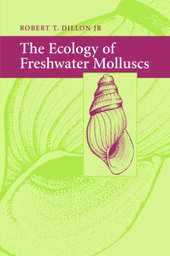
|
The Ecology of Freshwater Molluscs
Hardback
Main Details
| Title |
The Ecology of Freshwater Molluscs
|
| Authors and Contributors |
By (author) Robert T. Dillon
|
| Physical Properties |
| Format:Hardback | | Pages:524 | | Dimensions(mm): Height 237,Width 160 |
|
| Category/Genre | Molluscs |
|---|
| ISBN/Barcode |
9780521352109
|
| Classifications | Dewey:594.17 |
|---|
| Audience | | Professional & Vocational | |
|---|
|
Publishing Details |
| Publisher |
Cambridge University Press
|
| Imprint |
Cambridge University Press
|
| Publication Date |
9 March 2000 |
| Publication Country |
United Kingdom
|
Description
Here is a comprehensive review of the ecology of freshwater bivalves and gastropods worldwide. Robert Dillon discusses the ecology of these species in its broadest sense, including diet, habitat, and reproductive biology to emphasize the tremendous diversity of these freshwater invertebrates. He develops a new life history model that unifies them and reviews their population and community ecology, treating competition, predation, parasitism, and biogeography. Extensively referenced and synthesizing work from the nineteenth century through to the present day, this book includes original analyses that unify previous work into a coherent whole.
Reviews'... anyone wanting an intensive introduction to the biology of freshwater molluscs should find this text indispensable ... an excellent initial synthesis and a must-have compendium for malacologist and freshwater ecologist alike.' Joseph C. Britton, Trends in Ecology & Evolution ' ... a valuable resource for students seeking fresh research questions, readers looking for information about freshwater molluscs, and ecologists who want to see what freshwater molluscs have to offer.' David L. Strayer, Nature '... a real contribution to our knowledge of an ecologically important group of animals ... Dillon covers bivalve and gastropod antecology, life history strategies, population dynamics, parasitism, predation, biogeography and community ecology. What else could you want to know about freshwater molluscs?' Mark Young, Biologist
|